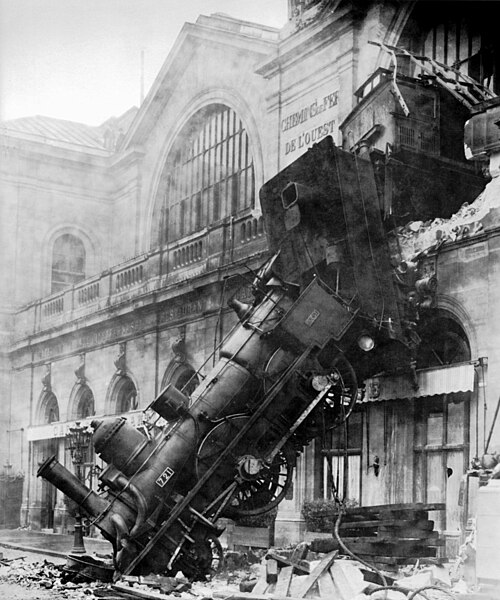
Disaster Capitalism |
|
Binyamin Appelbaum is a "staff writer" with the Washington Post whose article in the Saturday online version of the paper "Every Bank Failure Is Also a Beginning" is a reasonable article that gets down to the social facts of banking and lending with a good example and caveats that are realistic and understandable. Everyone who is worried about his or her bank folding should read this article because it tells what many of us have been writing about for weeks and months. The FDIC knows what it is doing, knows the banks that it takes over from experience with them in the past, from their highly regulated reporting requirements, and so very little but the social aspect of the bank failure is not covered by our preparations for these awful times.
The thing that annoys me about the article is the glib title. I am a teacher and I know from long experience that leading students to a conclusion that they are able to draw for themselves ... once they have been given the vocabulary to frame it in words ... is far more effective than blunt labeling. Telling people that bank failures lead to new beginnings is okay, but in the title of a piece it is tendentious. It seems to me to mean to lead to the conclusion that failure itself is okay. Failure is failure, though, and the idea that we like failure because it gives us the opportunity to "begin again" is to overlook the cost of failure.
The cost of failure is the long period during which the bank is "ailing," to use Appelbaum's terminology. "Ailing" is not just an accounting term; it is a state of bank management during which poor decisions are being made and each poor decision conditioning all following decisions. So, for example if the branch manager makes a loan to a company that is not really credit-worthy and that company goes bankrupt, the bank loses (a) money, (b) confidence in the manager, and (c) the opportunity to lend to other more deserving borrowers. The cost of failure is disguised by the notion that failure is really just a new beginning.
There is abroad in the land a sort of ideology of failure called "disaster capitalism" (perhaps after the book on this subject by liberal author Naomi Klein: The Shock Doctrine: The Rise of Disaster Capitalism. The central thesis of "disaster capitalism" is that there is a natural mechanism for weeding out the unfit from an economy, namely, failure and bankruptcy. The moral message in this thesis is that this process is natural and even desirable. The reason it is desirable is that this is the way that markets deal with excessive greed, incompetence, arrogance, and a host of other human peccadilloes.
Well, greed, incompetence, arrogance, and the like are not literally "little sins." They often have catastrophic consequences, such as massive layoffs, recessions, depressions, spiraling bankruptcies, and the like. It's just about what you would see out the windows of your car as you cruise the other parts of town today. Not only do the "disaster capitalists" like the idea of periodic disaster cutting down the least fit of their number, they actively promote the process as a means of eliminating competition. As every school child knows, the unspoken aim of every capitalist is to control his enterprise environment as closely and extensively as possible (short of outright monopoly, of course). So, disaster capitalism is not just the recognition that trouble often brings repair or renewal or removal, it is a tool in the armory of capitalism for hedging investments and managing competition ... regardless of the cost to "the externality," the commons.
Rahm Emanuel, President Obama's Chief of Staff, formerly a U.S. Representative (also) from Chicago, is on record with the expression "Never let a crisis go to waste." This is the liberal's smart-aleck version of the "disaster capitalists'" credo. It recognizes the idea that out of trouble and turmoil a smart person or organization can make changes that otherwise would not get made or would take a very long time to accomplish incrementally. We demolish buildings that no longer serve their intended purposes ... or we convert them to other uses ... or in slums we let them run down until the last vestige of socially acceptable purpose is milked from them. Demolition takes place when someone believes they can use the land to better purpose. So, you see, someone is always calculating the advantages and disadvantages of demolition, of catastrophe ... regardless of the consequences to the commons ... either way!
It is a matter of debate whether Mr. Emanuel actively pursues opportunities for crisis the better to accomplish his agenda. We know that others do. The problem with doing so is that crisis has its own flavor or as Lenin (and doubtless others) once said "after a while quantity has its own quality." Who among the disaster capitalists understands what he does to the common man, to the commons, to the little sparks of hope among our children?
None do.
Yes, there are new beginnings, and there are extinctions. Our willingness to ignore the consequences to the commons from carbon emissions will result, some say, in the extinction of hundreds, perhaps thousands, of species. How many sparks will be extinguished, how many hopes annihilated, how many human lives squandered to achieve the disaster capitalist agenda?
JB
| Rate It | View Ratings |
James R. Brett, Ph.D. taught Russian History before (and during) a long stint as an academic administrator in faculty research administration. His academic interests are the modern period of Russian History since Peter the Great, Chinese (more...)
The views expressed herein are the sole responsibility of the author
and do not necessarily reflect those of this website or its editors.

OpEdNews depends upon can't survive without your help.
If you value this article and the work of OpEdNews, please either Donate or Purchase a premium membership.
STAY IN THE KNOW
If you've enjoyed this, sign up for our daily or weekly newsletter to get lots of great progressive content.
If you've enjoyed this, sign up for our daily or weekly newsletter to get lots of great progressive content.
To View Comments or Join the Conversation:




